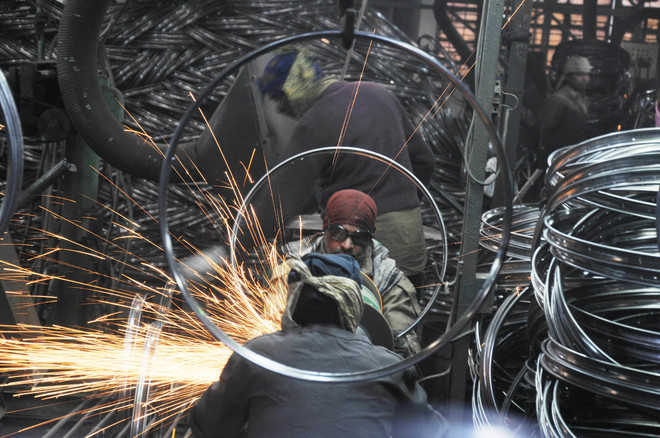Mohit Khanna
Tribune News Service
Ludhiana, May 18
As controversy looms over the proposed Chinese investment in the ambitious cycle valley project coming up at Dhanansu village, there is rising suspicion that the much-hyped Chinese investment will come through a special purpose vehicle (SPV), a subsidiary company with liability structure and legal status that makes its obligations secure even if the parent company goes bankrupt.
Sources said the camouflage of Chinese investment will provide an opportunity to large companies to set up a subsidiary company internationally.
“Invest money there and then bring that capital back to Punjab as foreign direct investment (FDI). By doing this, they can enjoy all sops offered by the government,” said Badish K Jindal, chairman of the Federation of Association of Small Industries of India (FASII).
Badish’s comments came a day after the Hero Cycles chairman-cum-managing director Pankaj Munjal pitched the cycle valley project with a promise that it would usher in growth for the small-scale sector.
Yesterday, Pankaj Munjal conducted a meeting with the members of the United Cycle Parts and Manufacturers Association (UCPMA) and addressed their concerns regarding the cycle valley.
After an hour-long meeting with the delegation of the UCPMA, the Federation of Industrial and Commercial Organisations (FICO) expressed satisfaction over the proposed Chinese technology investment in the cycle valley project.
On the other hand, Badish K Jindal fears that if Chinese companies are given the nod to invest, the small cycle manufacturers of the city will soon become history.
“Those who are talking about technology are fooling everyone. The promise of job creation by Chinese companies is just a mere eyewash. The Chinese are hugely investing in robotics. Robots will make cycles and minimum man power will be required in the Chinese units. Secondly, the raw material is cheaper in China than India. Is there any agreement that the Chinese will make only high-end cycles and will not enter the low-cost segment? The small-scale sector of Ludhiana will be wiped out, once Chinese companies enter the domestic market. In terms of pricing, we can’t match them. Already our imports have increased from Rs 200 crore to Rs 2000 crore and exports decreased from Rs 1,000 to Rs 600 crore,” said Badish K Jindal.
Chinese foreign investments are done strategically for better access to markets and resources. Over the years, the Chinese have mostly invested in the primary sector to augment the need for its manufacturing sector.
“China, like India, is a developing country and its manufacturing sector is an important employment generator for its humongous human resource. I can’t understand why would they want to shift manufacturing to Ludhiana. The Punjab Government should rather be looking for the FDI from developed countries which have knowledge-driven companies excelling in R&D, product design, etc. The incentive for such companies to invest in India is the large domestic consumer market for their superior products and the cost competitiveness that manufacturing here offers. From the Indian perspective, Chinese cycle companies don’t have any new technology to offer other than what they have received or copied from established international brands. Therefore, to expect or desire Chinese FDI in the cycle-manufacturing industry in Ludhiana is like living in ‘fool’s paradise’,” said Paramvir Singh Bhogal, an industrialist.
Unlock Exclusive Insights with The Tribune Premium
Take your experience further with Premium access.
Thought-provoking Opinions, Expert Analysis, In-depth Insights and other Member Only Benefits
Already a Member? Sign In Now










